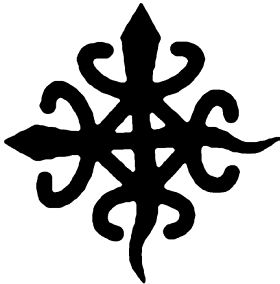20. I Am Because We Are: Communalism in African Ethics and Politics
Emphasis on the value of community as a major theme in African philosophy.
Themes:
• K. Gyekye, An Essay on African Philosophical Thought: the Akan Conceptual Scheme (Philadelphia: 1995).
• K. Gyekye, Tradition and Modernity: Philosophical Reflections on the African Experience (New York: 1997).
• J.S. Mbiti, African Religions and Philosophy (London: 1969).
• I. Menkiti, “Community, Communism, Communitarianism: an African Intervention,” in A. Afolayan and T. Falola (eds), The Palgrave Handbook of African Philosophy (New York: 2017), 461-73.
• I. Menkiti, “Person and Community in African Traditional Thought,” in R. Wright (ed.), African Philosophy: an Introduction (Lanham: 1984), 171-81.
• T. Metz, “Toward an African Moral Theory,” Journal of Political Philosophy 15 (2007), 321–41.
• D. Tutu, Believe: The Words and Inspiration of Desmond Tutu (Auckland: 2007).
• K. Wiredu, Democracy and Consensus in African Traditional Politics: Plea for a Non-party Polity, in E.C. Eze (ed.), Postcolonial African Philosophy: a Critical Reader (Cambridge, MA: 1997).
• K. Wiredu and K. Gyekye (eds), Person and Community (Washington: 1992).







Comments
What Is and what happens
Its good to see that Hiawatha is back! enjoyed this podcast a lot, made me think in the metaphysical question of what does it mean for something to Be. Defining it in terms of the community implies to me defining being in terms of interactions, in terms of a process, in this case, of interactions between the individual and his community. I’m probably going out on a limb here and overgeneralizing but Western philosophy to me seems to make a strong distinction between what is and what happens that I don't see so pronounced here or in Mulla Sadra, to mention another nonwestern example. In Western philosophy, Being is usually static, not dynamic. This is the basis of John Searle´s Chinese room experiment: what happens in the Chinese room is deconstructed to its mechanical process elements, it just happens, therefore it is not. To me this is strange since the clearest evidence of being in “I think, therefore I am” is precisely the thinking “process” which ceases to exist if it is frozen in time. Personally, y believe that what Happens and what Is are two sides of the same coin (I have to admit that I work in computer science, so I have a strong bias towards process).
In reply to What Is and what happens by Jose Castro
What's going on
Yes, that's a nice observation. One can find elements of this sort of "process" ontology in the Western tradition too, notably with Heraclitus for example. In general I think one of the interesting features of non-Western philosophy is that one often finds that distinctions just taken for granted as basic in Western thought are simply missing. So a good corrective to our assumptions about what and is not obvious or intuitive!
In reply to What Is and what happens by Jose Castro
What happens and what Is
I believe, however, that the distinction between being and change, fundamental in Western philosophy from Parmenides to Kant (with honorable exceptions like David Hume), has lost its hegemonic position since the beginning of the 19th century. I think specifically of the philosophers that I am most familiar with over the past two centuries: Hegel, Marx, Nietzsche, Foucault, Deleuze, Rorty. In all of them, in sometimes quite different ways, change is thought of as the very essence of being - hence the importance of history, dialectics, or genealogical method in all of the above cases. Your comment also reminded me of a long Hannah Arendt's analysis ("On Human Condition", last chapters), of the emergence in Modernity of a form of thought that puts the process in the foreground, as opposed to the contemplation of the medieval thinking. In other words, change passing to the front line, no longer "the Being" (thought of as something immutable or eternal).
Add new comment